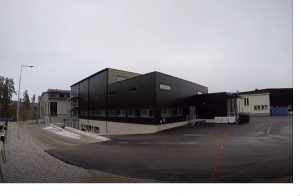NorthX Biologics will take over Charles River’s manufacturing facility in Matfors, Sweden through $52 million acquisition.
Seven months on from Charles River Laboratories $875 million acquisition of Cognate Bio (Cognate acquired Cobra Biologics in November 2019) the firm has offloaded one of its Cognate assets, selling a plant in Matfors, Sweden to private investor group Flerie Invest in an acquisition worth $52 million.
The entity has been named North X Biologics and the 7,000 square-meter facility houses process development and quality control laboratories, warehouse space, existing cleanroom infrastructure and is equipped to provide plasmid DNA and technical protein production at commercial scale.
“NorthX Biologics site today produces GMP DNA at 50 L scale, as well as technical proteins and microbiotica,” Ted Fjällman, CEO NorthX Biologics told BioProcess Insider.
“The expansion has started with RNA manufacturing being the first new capability. At the same time, with the help of the Swedish Innovation Agency Vinnova, NorthX Biologics is establishing an innovation hub at the site, which will enable small and mid-size enterprises to utilize infrastructure and development capabilities in collaboration with our staff to scale up DNA, RNA, and other advanced therapy medicinal products (ATMPs) manufacturing for clinical trials and eventual commercialization.”
The 128 employees at the site are expected to begin immediately. The firm claims this will result in additional manufacturing capacity, biopharmaceutical development, RNA and cell therapies, as well as R&D and production partnerships across the EU, Nordics and beyond.
According to Fjällman, the increased global demand for cell and gene therapy production is “not only because of the pandemic, but because indirectly more investment is coming to our sector because [the] sector has literally saved the world from continued lock-downs and poor economic performance. It feels like we’re in the Apollo era of biotech!”

